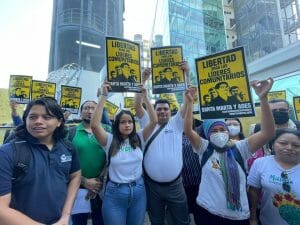NOVANEWS
CASTRO
Cuba blamed the U.S. on Tuesday for the situation of more than 1,000 Cuban migrants in Central America, pegging the crisis on U.S. Cold War-era immigration policy put in place during the early years of the U.S. blockade on Cuba.
“The Foreign Ministry wishes to emphasize that these citizens are victims of the U.S. government’s politicization of immigration issues,” said a government statement on a Cuban news broadcast.
The Cuban government statements come amid a recent spike in number of Cuban migrants crossing Central America en route to the U.S. Many Cubans, some wishing to reunite with their families, fear that the renewal of U.S.-Cuban relations could bring an end to a decades-old policy allowing landed Cuban migrants to stay in the U.S.
But more than 1,000 Cuban migrants have become stuck in Central America, facing challenges of tightened borders first at the Panama-Costa Rica crossing, then at the Costa Rica-Nicaragua border. Nicaragua tightened its borders Sunday and accused Costa Rica of fomenting a “humanitarian crisis” in the region.
Under the U.S.’s 1966 Cuban Adjustment Act, any Cuban who enters the U.S. is able to gain permanent residency after being present in the U.S. for one year. The act, amended in 1995 to not admit to the U.S. any Cubans found at sea, became known as the “wet-foot, dry-foot” rule.
The Cuban government considers this rule a provocation, while critics say the policy not only promotes dangerous forms of travel, but is also an incentive for human trafficking by criminal groups.
“This policy stimulates irregular emigration from Cuba toward the United States and constitutes a violation of the letter and the spirit of migration accords that are in force and through which both countries assume an obligation to guarantee legal, safe and orderly emigration,” said the Cuban government statement.
Cuba said it has been in contact with Central American countries on the Cuban migration route to discuss how to best remedy the migrant situation.



